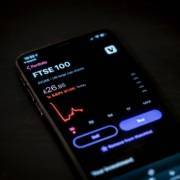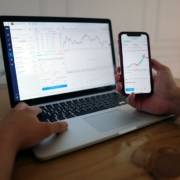The Impact of Simulations on Financial Career Preparation
In the evolving landscape of finance, the skills needed for success have transformed. Financial professionals are now expected to have not only a robust understanding of financial theory but also practical hands-on experience to navigate complex financial situations. One of the most potent tools that have emerged to facilitate this transformation is financial simulations.
Financial simulations provide students and young professionals with practical, hands-on experience that enhances their resumes and prepares them for real-world financial roles. The benefits of these simulations are vast, ranging from providing a safe environment to learn and experiment, to offering a realistic view of the challenges and opportunities present in financial careers.
Bridging the Gap Between Theory and Practice
Financial simulations serve as an intermediary between the theoretical concepts learned in classrooms and the practical applications needed in the real world. They allow users to apply their knowledge in a controlled environment that closely mimics real market scenarios. This experiential learning allows students to understand the intricacies of financial instruments and markets, which can be challenging to grasp through traditional classroom learning alone.
CapitalWave’s Finance Lab Software, for example, offers a suite of simulations across various financial platforms, such as Capital Market Simulator (CMS), Forex Trading Simulator (FTS), Portfolio Management Simulator (PMS), Fixed Income Trading Simulator (FITS), Real Market Simulator (RMS), and Market Making Simulator (MMS)1. These platforms give learners the opportunity to experience real-world scenarios and make decisions based on current market conditions. This immersion into realistic scenarios bridges the gap between theory and practice, enhancing understanding and retention.
Enhancing Resumes and Interviews
Financial simulations can give job candidates a competitive edge. Having experience with financial simulations demonstrates to potential employers that the candidate can handle real-world scenarios and has the applied knowledge necessary to excel in the role.
Additionally, the skills gained through simulations can lead to more engaging and robust responses in job interviews. For example, a candidate could describe a scenario from a simulation where they had to make a complex decision under pressure, demonstrating their problem-solving skills and understanding of financial markets.
Preparing for Real-World Roles
Simulations do not merely provide a theoretical understanding of financial markets; they also train students and young professionals to handle real-world financial roles. They can experience various economic outcomes such as bull, bear, flat, volatile, and flat/bull markets, giving them a better understanding of how different economic conditions can affect trading and investment strategies1.
One of the critical features of CapitalWave’s simulators is that they allow learners to play the roles of both a trader and a risk manager. This dual role-playing prepares learners for the multi-faceted aspects of real-world financial careers, emphasizing not just profit-making but also risk management2.
In addition, financial simulations can foster competition and collaboration, mirroring the dynamics of a real finance team. For instance, CapitalWave creates new simulations each semester for Student Finance Clubs to create internal competitions, providing broad exposure to different market segments2.
Financial simulations are revolutionizing the way future financial professionals are trained. They provide an immersive and practical learning environment that enhances career readiness, bridging the gap between theory and practice. By integrating financial simulations into their preparation, students and young professionals can walk into their financial careers with confidence, equipped with the practical skills and experience needed to succeed.











